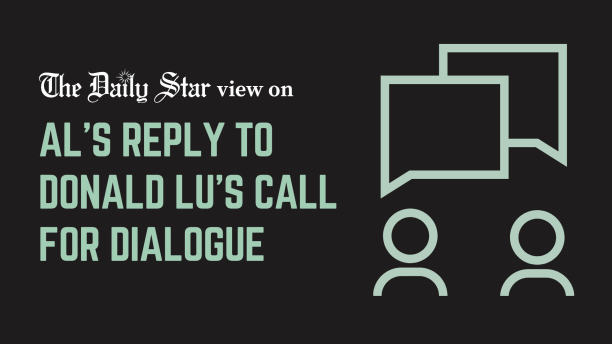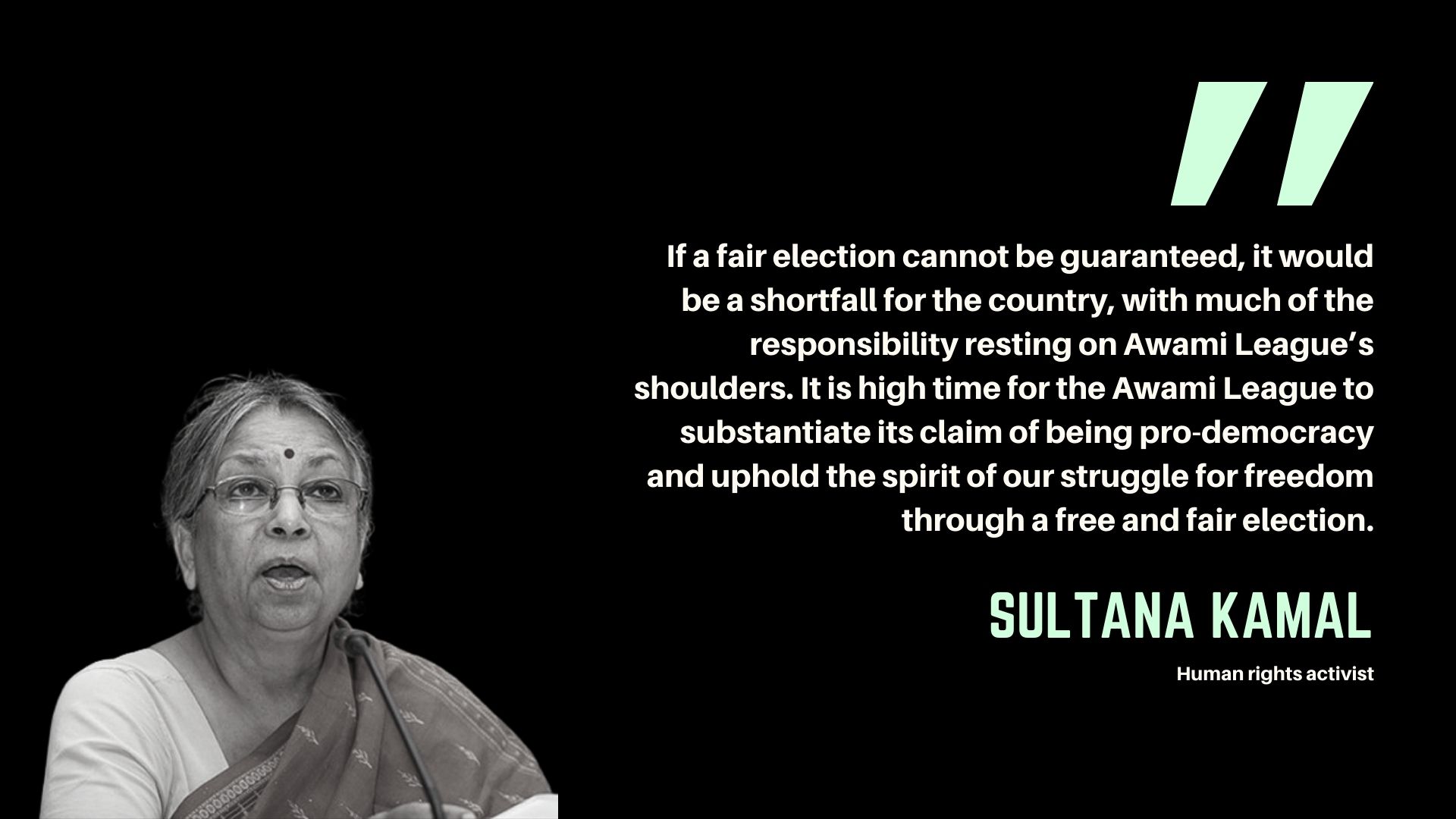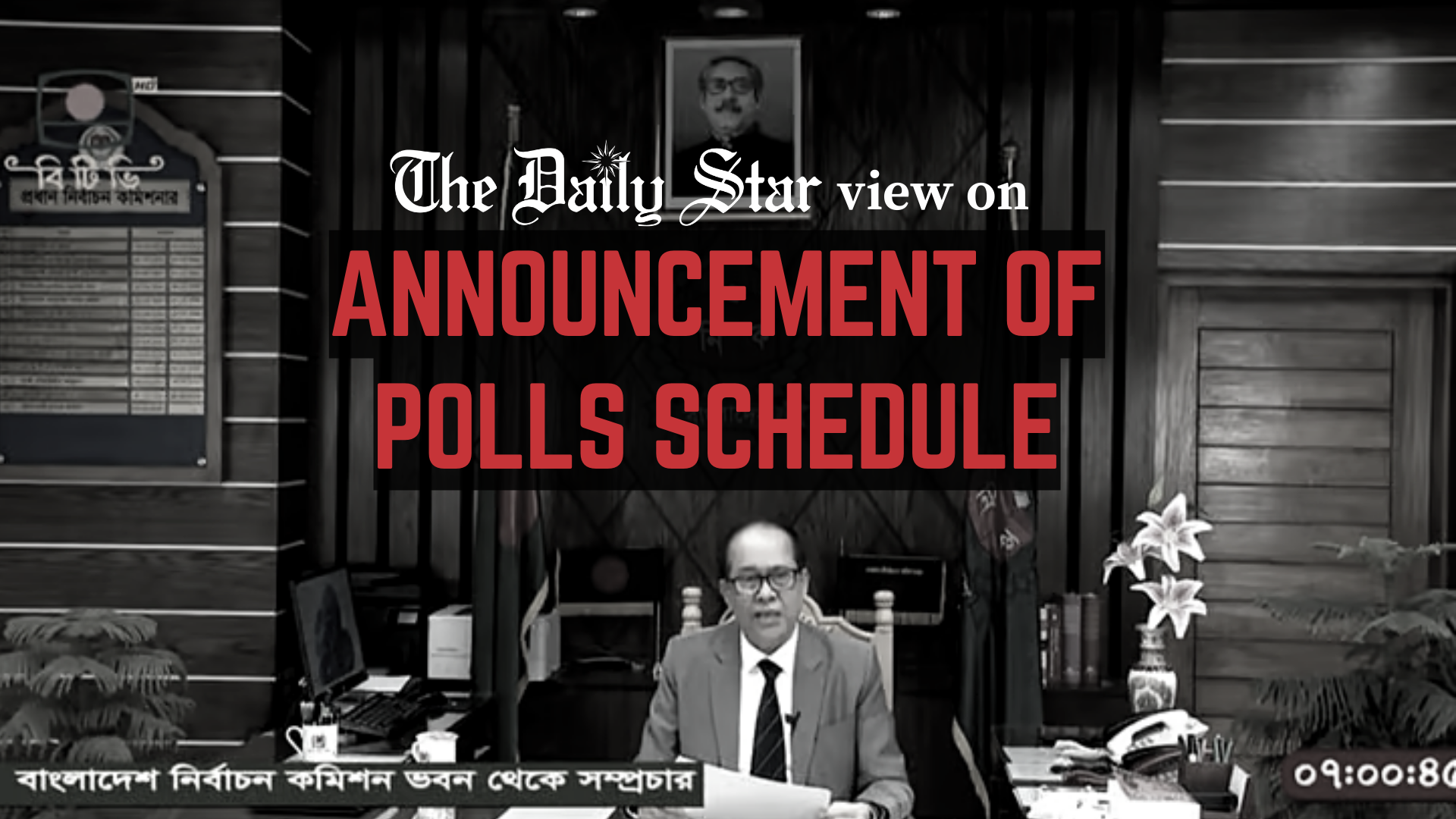No excuse good enough for forgoing dialogue

No one remembers an election for its being held on time. A massive undertaking like election must go according to plan, following rules and a fixed timetable, but it is just so that a free, fair and credible election can be held. Confusing the means with the end is a cardinal error in strategy—it is also a recipe for disaster, as we have seen in 2014 and 2018. Yet, this is what Awami League again seems to be doing. It has reportedly responded to US Assistant Secretary Donald Lu's call for dialogue to resolve the political deadlock, saying "there is not enough time for holding any meaningful dialogue"—alluding to the recently-unveiled schedule that set a January 7 date for the next election.
On Thursday, a day after the polls schedule was unveiled, the party's general secretary also spoke in these very terms while dismissing the possibility of talks with BNP. He said: "What can we do if they [BNP] do not get on the train? The electoral train waits for no one. When the train leaves, it does not and will not stop [for anyone]." In its letter to Donald Lu, the party also claimed that it had "kept the door open" for unconditional dialogue but it didn't work because of BNP's unwavering position on the resignation of the government as a prerequisite for any talk or the holding of any election.
This is only half the truth, however. Firstly, the assumption that the polling date announcement somehow marks a cut-off point for attempts to reach political consensus through dialogue is naïve as best, and dangerous at worst. Is sticking to a timeline more crucial than addressing the fundamental concerns of a fair and inclusive democratic process? Or is it just an excuse for avoiding genuine engagement on the critical issues that remain unresolved? Secondly, how sincere has Awami League really been in "keeping the door open"? Has it reached out to BNP and other parties to work out a plan? Has it sent any official invitation? If anything, it has sent mixed signals all along, sometimes acknowledging the importance of dialogue as a concept and sometimes ruling out the possibility of talks with "arsonists" and "murderers". Its arguments—now resting on polls schedule—have clearly evolved with time, which is frustrating.
Awami League's commitment to a free and fair election necessitates actions aligned with these principles. And that, right now, includes making greater efforts to engage with the opposition.



 For all latest news, follow The Daily Star's Google News channel.
For all latest news, follow The Daily Star's Google News channel. 


Comments